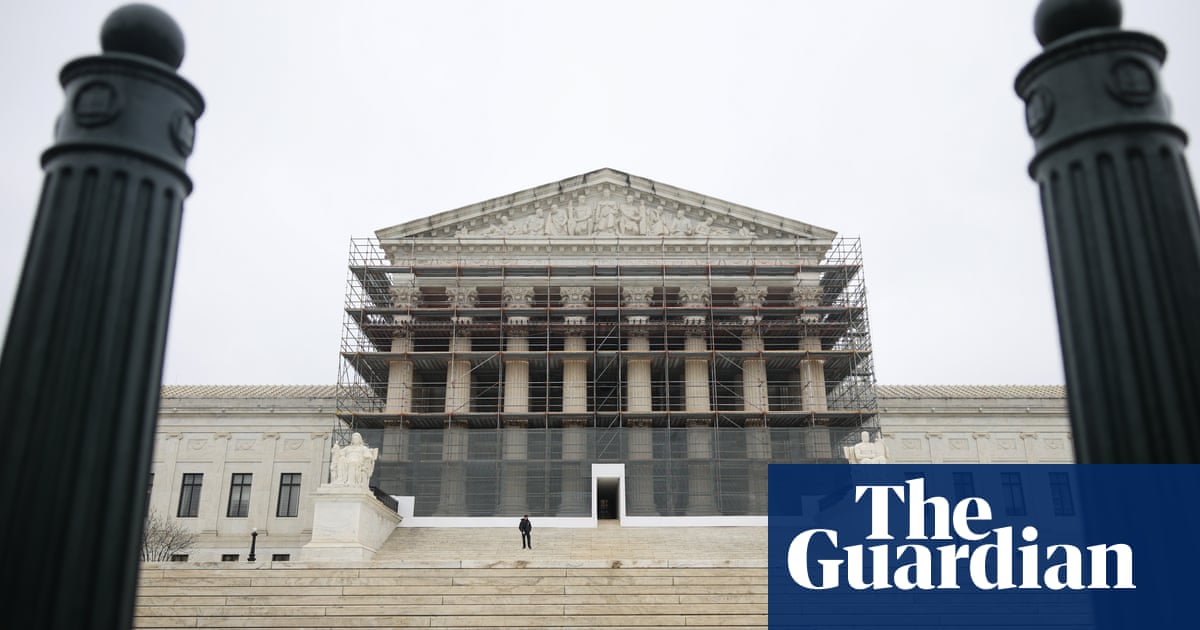TheUS supreme court’s conservative majority seemed open to establishing the country’s first public religious charter school as they weighed a case Wednesday that could have significant ramifications on the separation of church and state.
TheOklahomastate charter school board approved the application for St Isidore, a Catholic virtual charter school. The ACLU and other groups filed suit, as did Republican attorney general Gentner Drummond. The state supreme court sided with Drummond, ruling that the US and Oklahoma constitutions “prohibit the state from using public money for the establishment of a religious institution”.
The case is part of a broader push to erode the separation of church and state, a concept established through the US constitution via the “free exercise” clause of the first amendment. Oklahoma isat the forefrontof this debate.
The eventual ruling is seen as a test of the role of religion in the government and in schools. It comes as school choice programs like vouchers that allow students to use public monies to attend private schools grow nationwide and amid a sustained campaign against public schools.
Charter schools are taxpayer-funded and free for students, but operate independently and with more autonomy than traditional public schools. Drummond’s attorney warned the case could upend charter school systems throughout the states, said Gregory Garre, who is representing Drummond in the case. Some states may respond by ramping up religious charter schools and others could halt their charter programs to avoid approving religious schools, he said.
“This is going to create uncertainty, confusion and disruption for potentially millions of school children and families across the country,” Garre told the high court.
The school’s proponents argue the school is not a government entity, so the state is not endorsing or funding a single religion. They also contend that denying the school from becoming a public charter effectively discriminates against religious organizations and people of faith, and that blocking the school would deprive Oklahoma students of an educational option.
Jim Campbell, an attorney with the Alliance Defending Freedom, which is representing the state charter board, said there are hundreds of families signed up for the school already, despite it not being open. “They’re part of Oklahoma’s community too. They should not be treated as second class,” he said.
The conservatives on the court asked questions along similar lines, contending that the school simply wanted to be treated as non-religious entities. Justice Brett Kavanaugh said the school was asking not to be excluded on the basis of religion. He also questioned whether religious-affiliated programs for foster care or food banks could be negatively affected by a ruling against the charter school.
“Our cases have made very clear, and I think those are some of the most important cases we’ve had, of saying you can’t treat religious people and religious institutions and religious speech as second class in the United States,” he said on Wednesday. “And when you have a program that’s open to all comers, except religion … that seems like rank discrimination against religion.”
Siding with the school would fit with recent court rulings that have eroded the separation between church and state. Rulings in 2022 determined that state governments were in some cases required to fund private religious education and that a Christian football coach at a public school could lead his athletes in prayer.
The liberal justices pasked how the school intended to include religious beliefs and practices in its curriculum and whether creating a religious charter school crossed the line into the state endorsing a religion.
At one point, the liberal Justice Elena Kagan questioned whether other religious communities might teach different curriculum based on their faith, and a lawyer for St Isidore pushed back, saying these hypotheticals shouldn’t justify religious discrimination.
“Religious communities are really different in this country, and are often extremely different from secular communities in terms of the education that they think is important for their young people and is critically important to their faith,” Kagan said.
The Republican governor, Kevin Stitt, has supported St Isidore,callingthe lawsuit “the biggest religious and education freedom case in our nation’s history”. Ryan Walters, the Republican superintendent of public schools in Oklahoma, has frequently spoken in favor of St Isidore and has claimed there should be no separation of church and state. Hewrote in a Fox News op-edthis week that denying the school would be “religious bigotry”.
“Instead of fighting against parents and telling them that government officials know what is best for their children, we should instead listen to them,” Walters wrote. “There is hope that the supreme court will give us this chance, a chance to take power away from government bureaucrats and give it back to the people.”
The Trump administration supported St Isidorein an amicus briefand solicitor general D John Sauer argued in court on Wednesday that denying the school to be a public charter would violate the free exercise of religion.
Justice Amy Coney Barrett has recused herself from the case, so it is possible the court could split evenly, which would keep the Oklahoma supreme court’s ruling in place and prevent the school from being a public charter. Barrett has not given a reason why she recused herself, but sheis close friends withNicole Stelle Garnett, who is a faculty fellow at the Notre Dame religious liberty clinic that has represented the school. Barrett also taught at Notre Dame’s law school before joining the court.
A decision in the case is likely later this summer.
